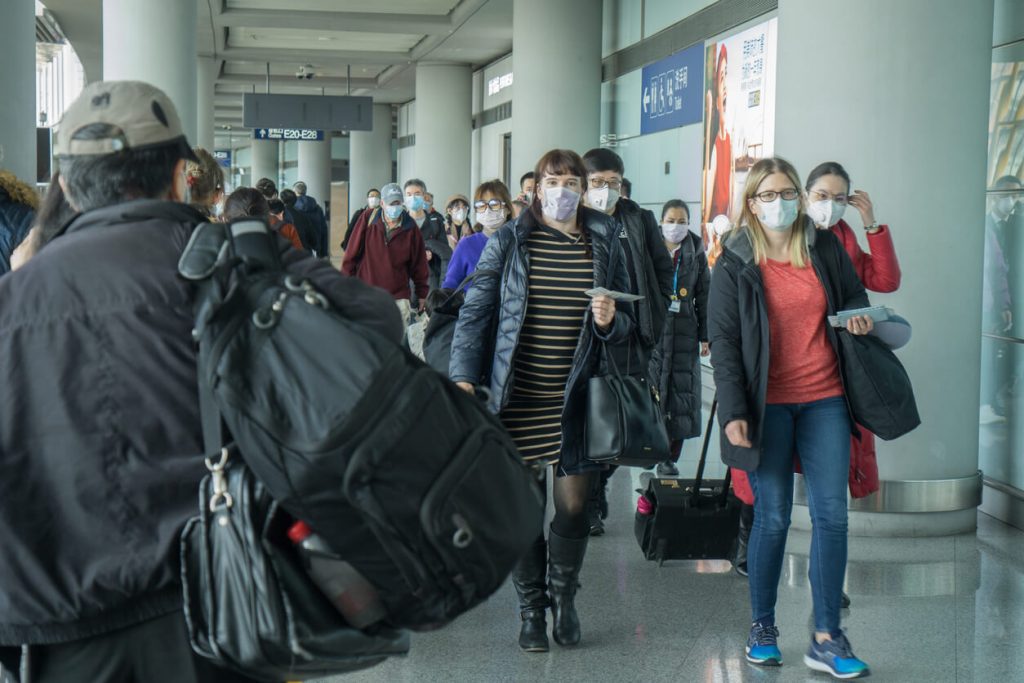The story of the year so far for the markets and the world, of course, has been the coronavirus outbreak in China. At present, the number of infections totals 72,436 and the death toll is 1,868. These are official Chinese government figures which many western health experts suspect dramatically understate the true extent of the problem.
Global Impact Uncertain
As far as estimating the ultimate global economic impact of this pandemic, it is of course way too early for an accurate prediction. Comparisons to the economic impact of today’s coronavirus and the 2003 SARS (Severe Acute Respiratory Syndrome) outbreak are challenging, as a lot has changed in China since SARS. In the early 2000s, China’s economy represented a much smaller share of global GDP (around 4%) than it does today (around 19%). China is also much more integrated with the global economy today than it was in 2003, with many tech companies having built out extensive supply chains there. Within China, consumer spending and travel have become much larger components of the domestic economy in recent years, likely making it tougher to ringfence the economic fallout inside China. Thus, it seems probable that the ultimate economic cost of the coronavirus (especially to China), will well exceed that of SARS. As things look now, China will almost certainly not hit its goal of 6% growth in 2020.
U.S. Equities Subdued, For Now
So far, however, U.S. equity markets have had a very muted response to the outbreak. In the new year, the Dow is up around 2.5% and the S&P 500 Index is up just over 4%. Over the holiday weekend, Apple announced that it will miss its revenue targets for the first quarter of 2020 as a result of its supply chain being partially shuttered in China. There will be many more announcements like this in the near future. Surely market participants are expecting some dour news to come from companies in the coming months, but if the lack of downward pressure on prices is any indication, they appear to be planning to look past the economic disruption cause by the outbreak to the resumption of normal trade and economic growth.
But Bonds Gaining
In the two weeks after the announcement that the coronavirus could be transmitted between humans, the U.S. 10-year Treasury note gained about 3% in price. This reaction from the bond market to the coronavirus provides valuation support for stocks. One of the most important underpinnings of stock valuations is the level of interest rates. All else equal, lower long-term rates support higher equity valuations for two primary reasons.
First, global investors see high-grade bonds as a safe haven during uncertain times. As bond prices are pushed up as buying pressure intensifies, yields decline. Stocks, which are locked in a perennial beauty contest with their fixed income counterparts, look relatively better when bonds offer so little. On February 13, the U.S. Department of the Treasury sold $19 billion in 30-year bonds at a record-low yield of 2.061%. The U.S. 10-year Treasury note yield is now 1.56%. By comparison, even while sporting above-average valuations, the dividend yield on the S&P 500 Index is 1.81%.
Second (and somewhat wonkish), is that in the equation for calculating the present value for a certain company, an interest rate assumption is required to discount future projected free cash flows from the company back to a present-day value. If a lower rate is used in the calculation, the future cash flows that are discounted back to the present will have a higher value and will thus support a higher theoretical present-day value for the company.
The U.S. remains the preeminent destination for global investors for a host of reasons. Our dollar, which has gained 3% in value since the beginning of the year versus a basket of other currencies, continues to be attractive relative to other developed market currencies. Our open and vibrant economy, with its low unemployment, strong consumer spending and intellectual property protections, continues to thrive. As we move through the corporate earnings season, many companies will announce lower forecasts for the coming year due to impacts from the coronavirus. For now, anyway, investors seem to collectively think that the coronavirus will be contained before it does too much economic damage.
Please don’t hesitate to get in touch with me if you would like to discuss your portfolio or the markets.





